Alphabet Recognition Easy Worksheets for Ages 8-9
6 filtered results
-
From - To
Unlock your child's potential with our engaging Alphabet Recognition Easy Worksheets for ages 8-9! Designed by educators at Kids Academy, these worksheets make learning fun and effective. Each activity focuses on identifying, tracing, and writing letters, enhancing your child's reading and writing skills. The worksheets incorporate vivid illustrations and interactive tasks, promoting active participation and retention. Perfect for both classroom and home use, they're an excellent resource for reinforcing letter recognition, phonics, and spelling basics. Give your child a head start on literacy with our thoughtfully crafted, easy-to-follow alphabet worksheets. Success is just a click away!
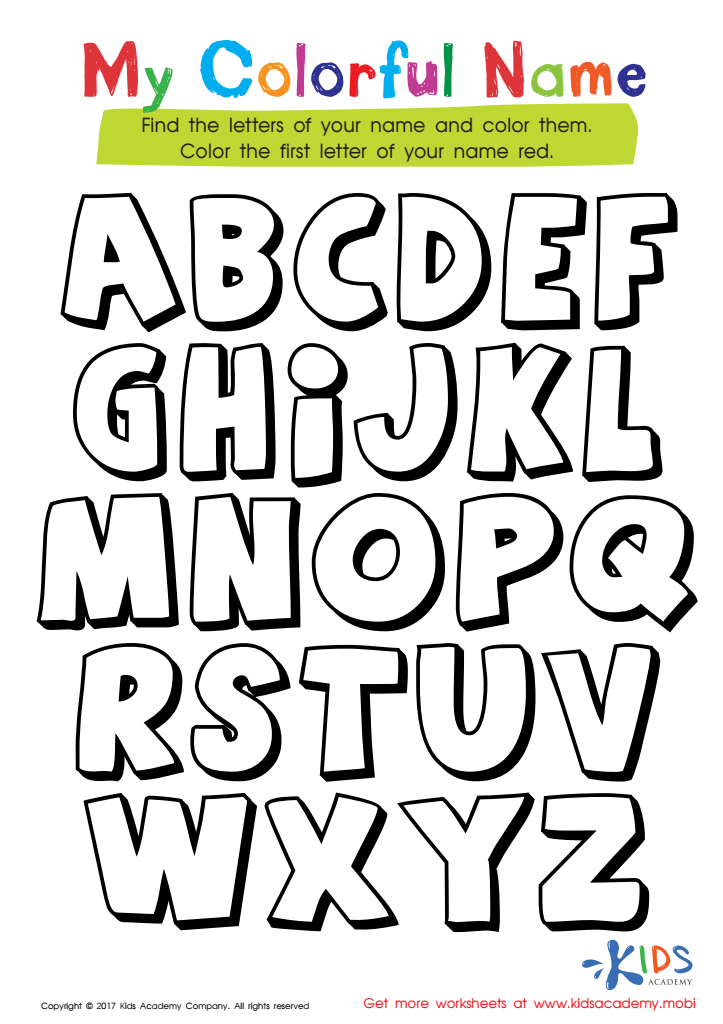

My Colorful Name Worksheet
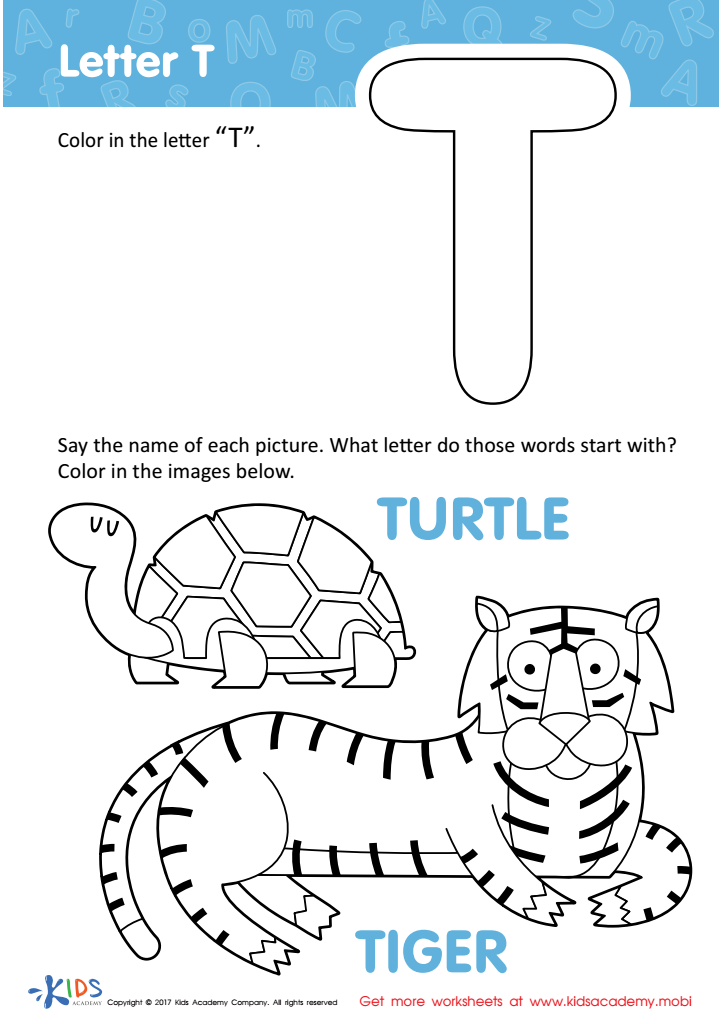

Letter T Coloring Sheet
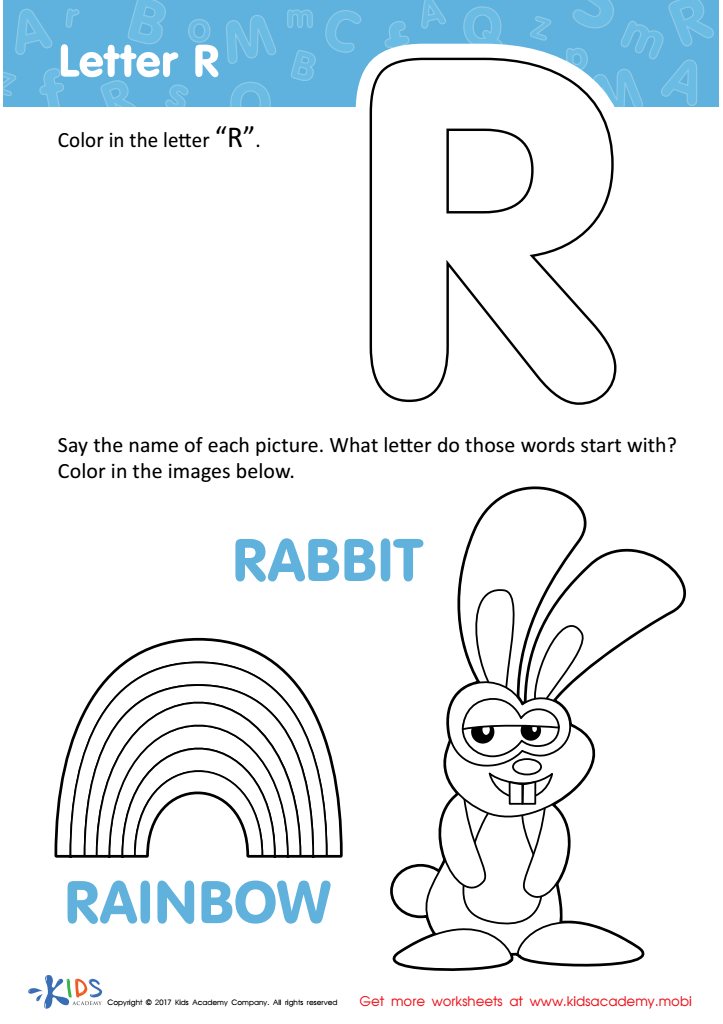

Letter R Coloring Sheet
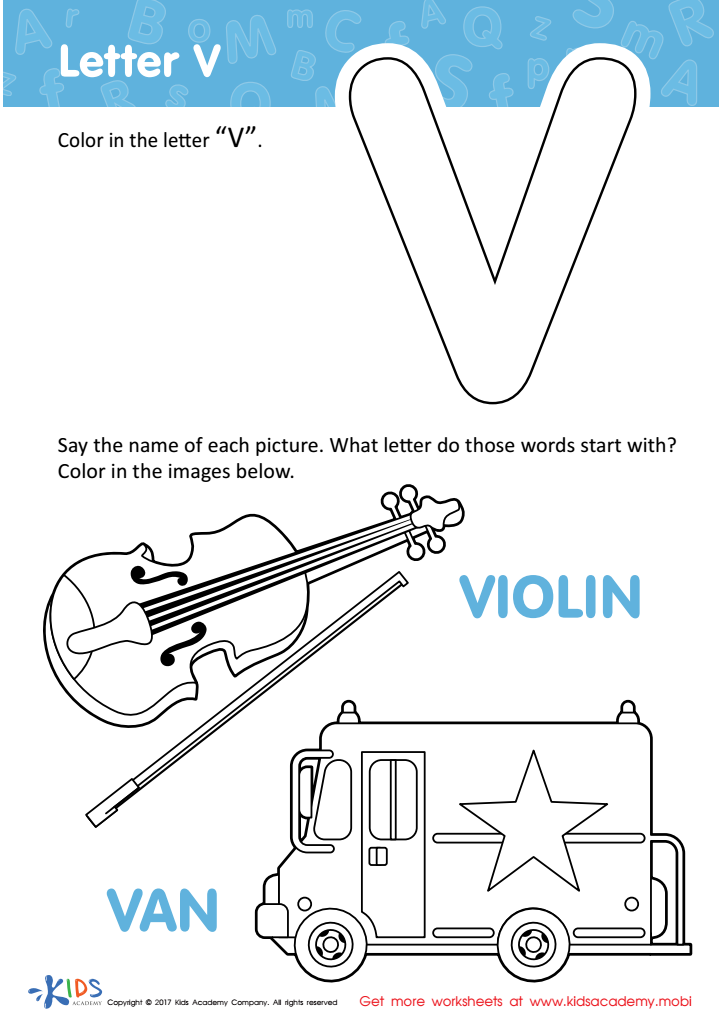

Letter V Coloring Sheet
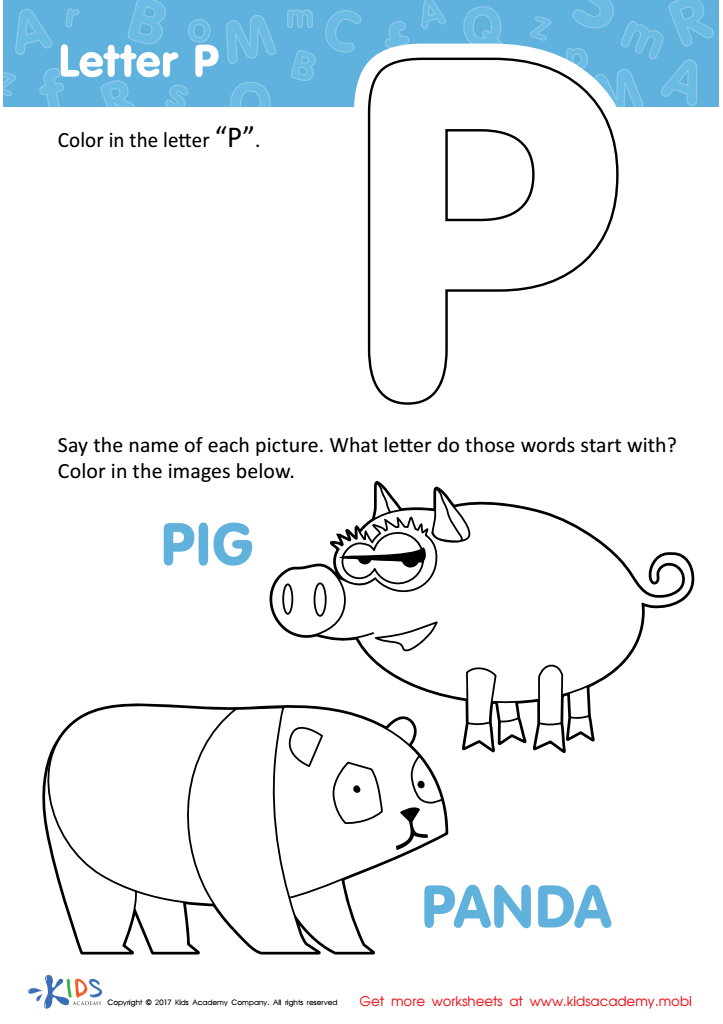

Letter P Coloring Sheet
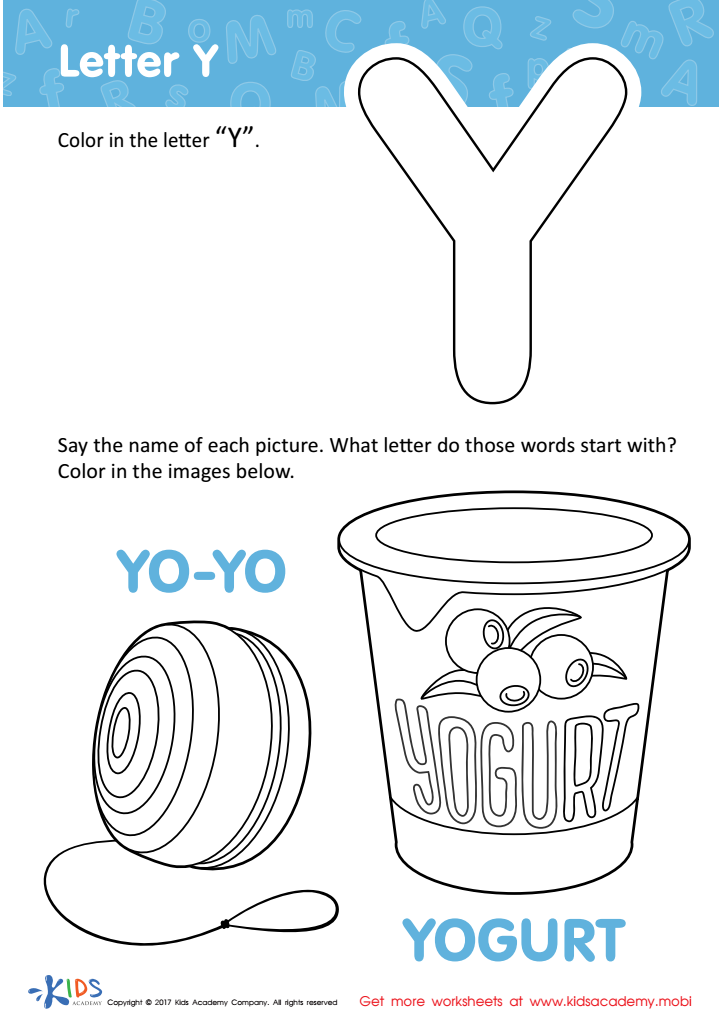

Letter Y Coloring Sheet
Alphabet recognition is often emphasized in early childhood, but reinforcing these skills using a simplified yet effective approach remains vital for eight- to nine-year-olds. At this stage, children's cognitive and literacy skills are rapidly evolving, and ensuring they have a solid understanding of the alphabet lays the foundation for more advanced literacy development.
Children in this age group are transitioning from basic to more complex reading and writing tasks. Ensuring they recognize and are comfortable with each letter in varying contexts—such as different fonts and cases—bolsters their reading fluency and comprehension. Easy recognition activities play a crucial role in reinforcing these basic skills while making the learning experience enjoyable and less stressful, cultivating a positive attitude toward learning.
Besides reading, alphabet recognition also fuels vocabulary growth and spelling accuracy. It aids in the development of decoding skills essential for tackling unfamiliar words. Moreover, quick and confident recognition of letters fosters independence and academic confidence.
Teachers and parents who prioritize and support continued practice of alphabet recognition help build a robust linguistic foundation. This practice paves the way not just for academic success but also for the overall cognitive development of children, equipping them with essential skills for effective communication and lifelong learning.
 Assign to My Students
Assign to My Students









.jpg)










